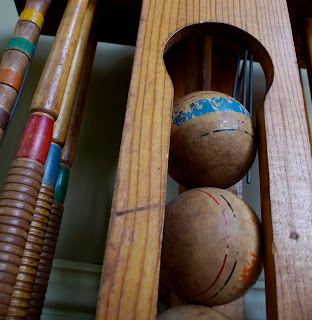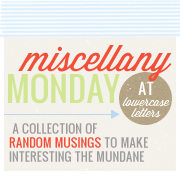It is easy for me, an avid reader and literature
professor, to reference Shakespeare, who was obviously aware of the Proverbs,
as he echoes Proverbs 22:7 and 26-27 in Polonius’ advice to his son in Hamlet: “Neither a borrower nor a lender
be.” These verses explain the risks of debt: you become a servant to the one
you are indebted to (22:7). And then Solomon counsels us not to purchase things
we aren’t able to pay for in the first place. When we do, those things don’t
really belong to us, and the actual owner could come and take them away
(22:26-27).
Debt is a bit of a dirty word in my house, but I realize
that I live in a culture that embraces the convenience and instant
gratification of borrowing. I’d like to focus here on the wisdom and
satisfaction that can come from saving before spending. Perhaps one of the reasons
debt is mentioned harshly by Solomon is because it can counteract other
important characteristics and life skills the author says wise people have. Debt is often the temptation of
the immediate or the perceived salvation for the ill-planned.
I’m not saying we’ve never had to borrow before. My parents
have helped us out of a few scrapes. Throughout Jay’s graduate degree, we
didn’t take out a single student loan. We lived carefully from paycheck to
paycheck, but that meant little went into savings. Soon after Jay graduated, we
found a house that my eight-month-pregnant brain and heart said we needed to
own. My parents helped us with the down payment, and we knew we’d get a tax
refund back within two months that would allow us to repay the loan. In my normal
state, I had always wanted to save up a healthy down payment before purchasing
our first home, but it was hard to argue with my hormonal soon-to-be-a-mom’s
imposing need for more space for her coming child.
Many months later, when part of my logical brain re-engaged,
I would think about the rushed decision to buy, and how perhaps we could have
gotten a better deal on the house in general if we had waited until we saved up
our own down payment. (Also, perhaps we would have been stuck for several months
in a cramped apartment with a nursery that smelled like cat urine, so it’s hard
to consider all the what if’s.)
When Jonas arrived, our car was too small. This time, though, we thought and acted differently. Jay worked a second job for a couple of months, and we are put away money to
pay cash for a mini-van.
The lessons of patience, of working ahead instead of getting
behind, of thinking about owning instead of owing: these are at the heart of
the avoidance of debt.
Hard to believe it was over eight months ago when Jonas came into our lives, cramping our car and filling our hearts.
this post is linked up with















































